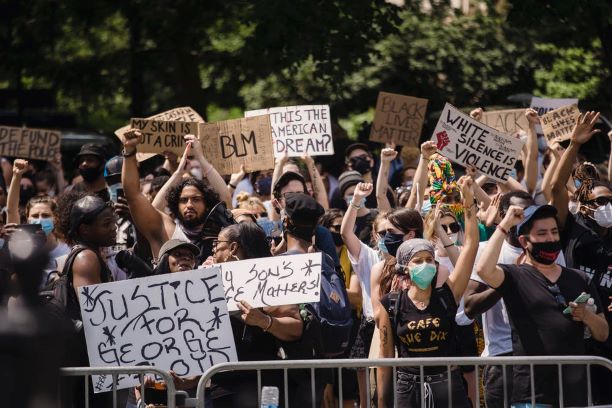White people, Black History Month

This past summer was a wake-up call for white people. Not all of us got woke, but some of us heard the alarm clock go off. I reflect on this during Black History Month.
I think 2020 will be seen as a good year for Civil Rights, when the history books get written about this time. This is what I see among white people:
Reading, thinking, and growing
White America (particularly liberal white America) began to reach for an understanding of systemic oppression, starting in 2016, and building momentum. It is a joke within the Black community that when the going gets tough, white people form book groups. But, I will defend white America’s right to admit that they have huge gaps in their understanding, and honor those who do something about it. The recommended books, and more books, some being fiction, some directly about racism, some even baby books, were advertised and shared among white audiences. Podcasts, movies, and other books, too.
The tide turned, somewhat, in white America in these four years. The thesis of Black Lives Matter — that America is designed to support white people – is starting to make sense to white people. The opposite of “Black Lives Matter” is “Black lives don’t matter.”.A growing number of white people are becoming aware of how Black lives have not mattered in America. Over time, I hear fewer people respond with “all lives matter.” At best, this learning informs a growing number of effective allies in the Black Lives Matter movement.
In the four years of the 45th President, the other books that had a lot of sales and traction where those that were about poor white people. Understanding their voice is also important to disentangle how, in America, poverty is seen as a moral failing. That hurts poor people of any color. Middle-class and wealthy white people have not been an ally to poor white people; both political parties have ignored their voices, too. It was a worthy goal to understand that white resentment is real and doesn’t come out of nowhere. It is white people who can affect white people who feel disenfranchised; this is not Black people’s work.
Demonstrating
The murder of George Floyd was a wake-up call for white America. It is nothing new that police kill Black people at a proportionally much higher rate than they kill white people. However, America was home a lot more this year. White people watched video of a policeman who killed a restrained adult, in front of witnesses. No fellow officer stopped him. He did not consider that there would be consequences, because he was doing his job.
Throughout America Black and non-Black participants came out to protests this murder and proclaim that Black lives matter. Demonstrations, in 2020, were dangerous because of Covid. When crowds got compacted – crowded by the police — there was risk of a deadly disease. Those demonstrations were mostly peaceful. However, police used horses, tear gas and other military actions against peaceful demonstrators. The press highlighted looting and violence, because of the “if it bleeds it leads” news mentality.
Taking a Knee
When Colin Kaepernick took a knee during the National Anthem in 2016, it became a national debate. Now Colin’s actions have gathered more respect and less derision. Taking a knee, as a symbol, became a visual during this summer’s demonstrations. Derek Chauvin used his knee to suffocate the restrained George Floyd. During demonstrations, some police joined protestors in using a bent knee to honor the murdered man. Demonstrations often included having participants take a knee for the eight minutes 46 seconds that it took Officer Chauvin to kill George Floyd. It is visceral to experience just.how.long eight minutes and 46 seconds is.
Voting. Stopping the disenfranchisement of minority voters.
The big heroes of the 2020 election were Black women. They are in the leadership for voters’ rights and they, themselves, voted in large numbers this year. Black women led. White people helped in large numbers, throughout the country. This, too, is progress.
As we come to the end of Black History Month, 2021, I feel optimistic that America can move in the direction of racial justice. It is easy to be more optimistic that we have been for the last four years. I am more optimistic than I have been in my entire adult life (even during the Obama era).